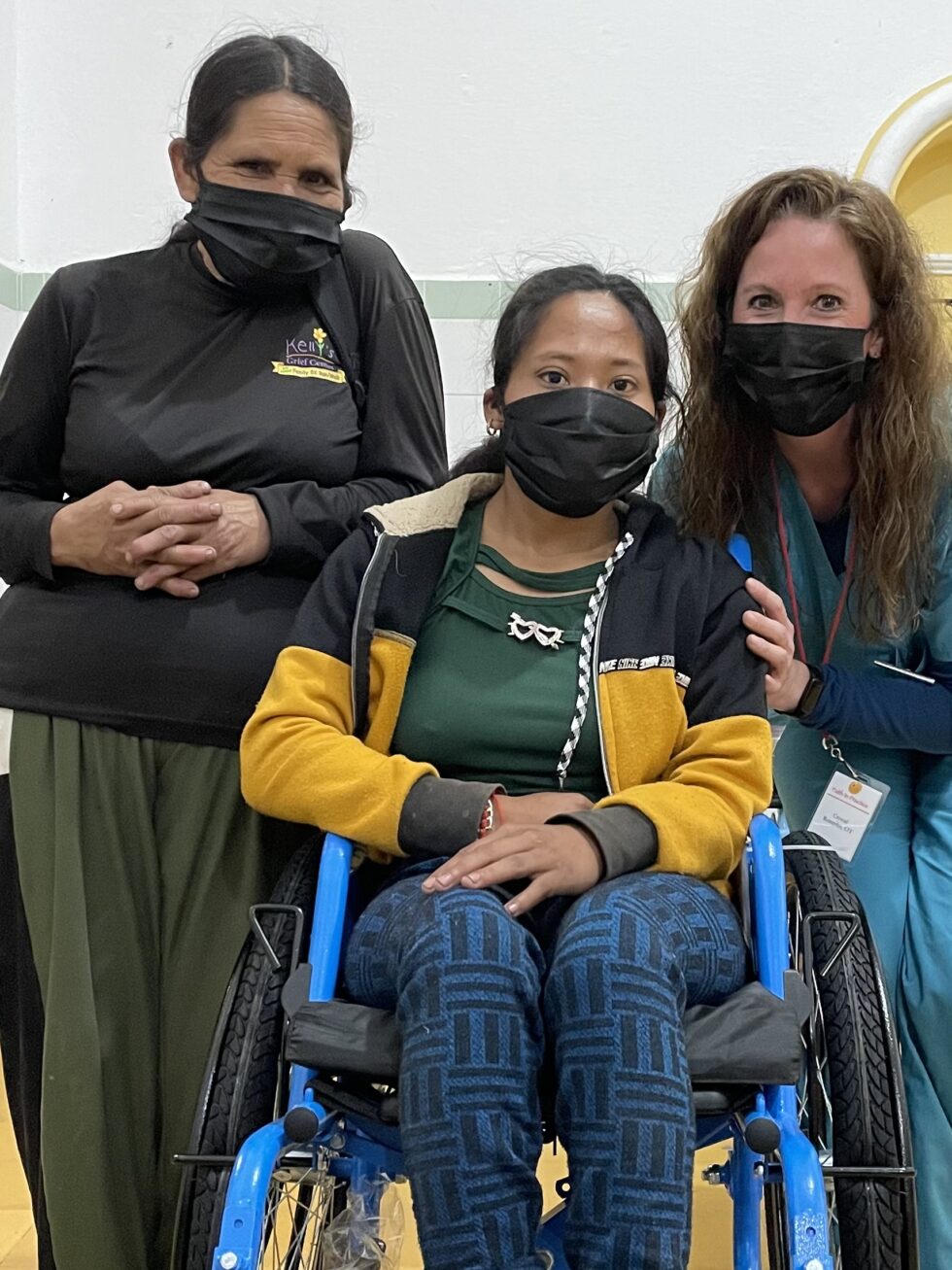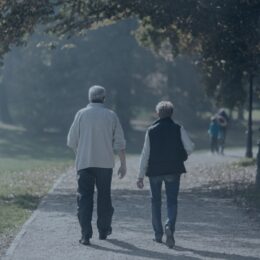
By Thomas Moll
Director of Content & Innovation
A 13-year-old girl sits in a stroller unable to walk. A man is in tears because he’s afraid he’ll never be able to move on his own again. A woman’s only way to leave her home is being carried in a plastic chair.
These are all true stories of people who have lost independence and mobility in Guatemala. For many, these heartbreaking stories are overwhelming to hear because they feel there is nothing they can do, but for Crystal Rempfer and the team at Faith in Practice, it was a call to action.
Rempfer is an occupational therapist just north of Houston, Texas. She is also a provider of hope through Faith in Practice, a ministry that works to “improve the health and wellness of underserved Guatemalans through health-related medical missions, community-based health initiatives, robust partnerships, and education while fostering spirituality and compassion in our patients and volunteers,” according to their website.
Rempfer first worked with Faith in Practice before COVID hit and has continued to do these trips every other year. Her most recent trip was in 2023.
Each mission team is led by different medical professionals from ENTs to urologists, gynecologists, oral surgeons, audiologists, nurses, and orthopedic surgeons. Rempfer’s team was led by an ENT who was looking to add someone with experience in fitting people to wheelchairs. In many medical systems, physical therapists are the ones to custom fit wheelchairs, but in Rempfer’s group, this was a job for occupational therapists like herself. Once she got the email, she knew this would be an opportunity to serve unlike any other she’d ever done.
“I’ve always loved mission trips. I loved the ones I went on as a youth, and the ones I went on as a chaperone. And, you know, the older you get, you wonder, ‘What’s my place in doing that now?’” Rempfer said. “Every trip I went on, there was something to do, but this one really spoke to me because it tapped into something I had a skill set in—something that I knew not just anybody could do.”
Rempfer came into her first trip with passion and experience, but this didn’t mean that everything was easy. There are always challenges going from one culture to another and trying to translate more than just language.
“We had translators, but it's hard for a translator to convey my passion or exactly what I'm trying to say,” she said. “I really had to learn what was realistic and what was normal for this population.”
In the U.S., Rempfer has collegues and the latest medical techniques at her disposal. In Guatemala, she had to adapt to not only what was available but to their culture and way of doing things.
“The recommendations that I have for my patients here (in the U.S.) has to be very different than what’s there,” she said. “We talk about pressure relief and the things that really are important, but you have to find a different way to explain them. … You have to put things on a pretty basic level to make it understandable.”
During the trip, patients would be brought into the clinic where the mission team would assess needs. Rempfer’s work would not only includes assessing the best way to fit someone to a wheelchair but also working with friends or family members to make sure that whatever changes were made, they had the chance to be sustainable once the mission team left.
Another challenge was the fact that most people coming in for help didn’t come with previous medical records or a solid diagnosis.
“Very few know their diagnosis. They just know that they’re getting weaker. … To see the tears of these men who come in realizing they can’t move the way that they want to, and they’re going to fall, they’re just afraid of what they’re going to do to their family,” Rempfer said. “This man came in there thinking that he was giving up every bit of independence that he had, and that his wife was going to have to push him around because he wouldn’t be able to do anything for himself. When he realized that he could still move around and control this chair, he just started crying.”
Mission trips offer the opportunity to serve in special ways. Faith in Practice offered Rempfer a way to use her life experiences, skills as an occupational therapist, and her faith in Jesus Christ to deeply impact the lives of those in need. But mission trips help more than those being served; they also touch the hearts of those serving.
“God is teaching me to have a more grateful heart,” she said. “I’m realizing just the extent of blessings in my life. It shows me the things that I take for granted. And yet, I think what Guatemala shows me, too, is how I feel like I lean into these phrases or things you’ve heard before like ‘He’s enough.’”
Rempfer has taken the lessons she learned in Guatemala to improve her work with patients in the Houston area. These are not work sponsored trips, so she makes the sacrifice of taking vacation from work to serve in this unique way. Rempfer plans to return in 2025 to fulfill this purpose God has set out for her.
“What they say to me is, ‘I pray for you.’ ‘I thank God for you,’” she said. “I just am blessed to be able to be here and give you this chair.”
Discovering our own Purpose
For as in one body we have many members, and the members do not all have the same function, so we, though many, are one body in Christ, and individually members one of another. Having gifts that differ according to the grace given to us, let us use them: if prophecy, in proportion to our faith; if service, in our serving; the one who teaches, in his teaching; the one who exhorts, in his exhortation; the one who contributes, in generosity; the one who leads, with zeal; the one who does acts of mercy, with cheerfulness. ~ Romans 12:4-8 (ESV)
Crystal Rempfer had done many different types of mission trips, but when she went on a trip that used her skills, experiences, and training, she saw how God had uniquely equipped her to serve in Guatemala. You may not be trained in something like occupational therapy, but as part of the body of Christ, you are gifted to love God and love others.
The Holy Spirit gives each believer spiritual gifts. This passage from Romans reminds us that these gifts are meant to be used. Spiritual gifts are given to build up the Church.
God also has given us experiences that He uses to mold us and shape us. God works all of this for our good, but also for the good of others. We also all have natural abilities that may not seem spiritual on their own but can be used to connect with others, help others, or fill a vital need for our church community.
Take time to reflect on your gifts and how you can serve others. What gifts do you use? Are you a great listener? Are you a healer? Do you have the gift of speech or as a writer? What life experiences have helped you? How natural did it feel?
Serving others isn’t always easy, and this part of our Christian walk of faith is sometimes burdensome. But, consider the amazing ways God has made you and how much easier it could be to show His love to others when focusing on what you have to give instead of what you lack.
“Every trip I went on, there was something to do, but this one really spoke to me because it tapped into something I had a skill set in, something that I knew not just anybody could do.” ~ Crystal Rempfer
Photo provided by Faith in Practice and Crystal Rempfer. Men, women, and children of all ages are helped through the medical mission teams to Guatemala to provide wheelchairs for those in need.


